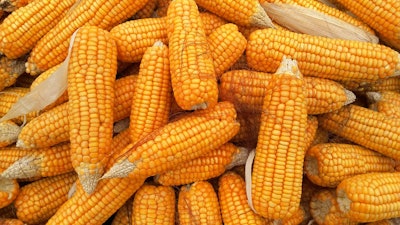
Quarterly Grain Stocks Expectations
- USDA will release its September 1 Quarterly Grain Stocks report at 11 a.m. CT on Wednesday, September 30.
- September 1 corn stocks are expected to be 2,250 million bushels according to the average of analysts’ estimates.
- The range of estimates is 1,120-2,574 million bushels compared with 2,221 million bushels last year.
- The average estimate for soybean stocks is 576 million bushels, within a range of 490-608 million, versus 909 million last year.
- USDA is expected to revise the 2019/20 soybean crop up to 3,575 million bushels from 3,552 previously.
- Wheat stocks are estimated to be 2,242 million bushels in a range of 2,150-2,380 million and compares with 2,346 million last year.
- Any necessary balance sheet revisions as a result of the Grain Stocks reports will be made in the October 9 monthly report.
FBN’sTake On What It Means: Last year’s September Grain Stocks report provided the most significant bullish surprise on record for this report, with corn stocks coming in 314 million bushels below the average trade estimate, but it is unlikely to occur this year. USDA has been using a negative soybean residual figure since the July report, which is often the case when the previous crop size has been underestimated, which should be resolved in this report. The current old crop balances are more than ample, but the impressive new crop demand structure for corn and soybeans keeps an added risk element if any significant surprises are seen.
Brazil Imports Soybeans
- A Rio Grande soy processor was reported to have bought three cargoes of 30,000 tonnes each from Uruguay in September.
- Brazil’s imports through August increased to 477,372 tonnes; four times greater than the same period last year.
- Crushing margins in Brazil remain attractive as strong demand keeps domestic prices high for meal and oil.
- Imports are the highest since 2003, when production was about 50 million tonnes, less than the record 124.8 million tonnes Brazil produced this year.
- Due to record exports through August, Abiove forecasted ending stocks at 419,000 tonnes, the lowest since at least 1999.
FBN’sTake On What It Means: Brazilian crushers are increasing imports due to Brazil’s low supplies and high local prices as farmers hold the few beans left. China’s record demand and a weak Brazilian currency have led to record exports. Supplies will remain tight until the next harvest in February, and prices will likely be supported in the meantime.
FBN Market Advisory services are offered by FBN BR LLC, dba FBN Brokerage, FBN BR and FBN Market Advisory (NFA ID: 0508695)
The risk of trading futures and options can be substantial and may not be suitable for all investors. Past performance is not necessarily indicative of future results.
This is not an offer or solicitation in any jurisdiction where we are not authorized to do business or where such offer or solicitation would be contrary to the local laws and regulations of that jurisdiction, including, but not limited to, persons residing in Australia and Canada.



















